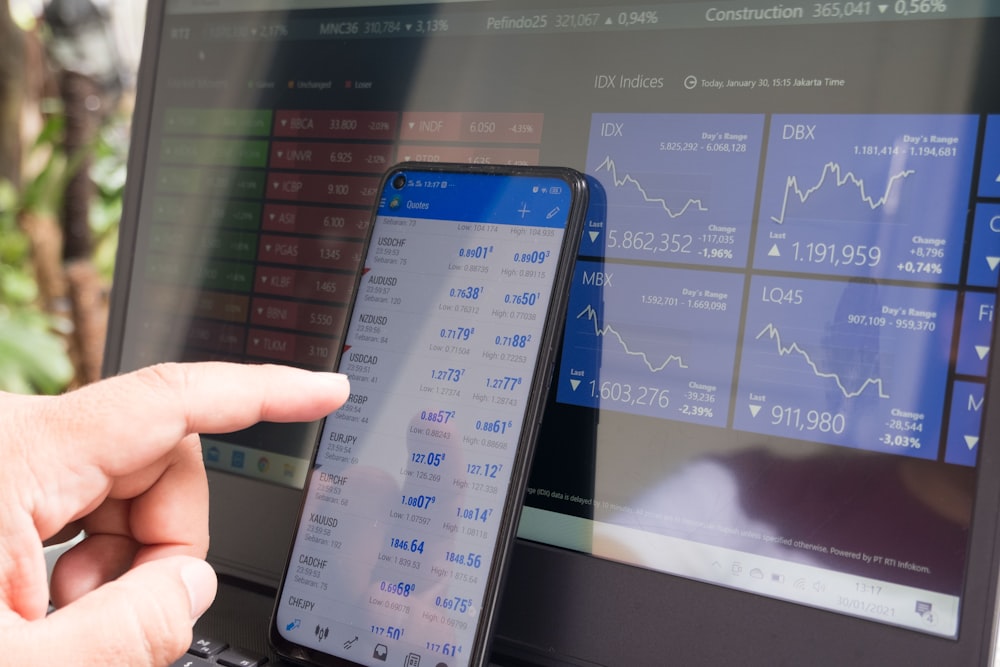This “Lotto Trade” Puts Us At The Epicenter Of The Quantum Security Explosion
Image Source: Unsplash
It’s tough to overstate the impact quantum computing is going to have on just about everything.
To compound the issue, there’s a ton of extraneous hype and misinformation flying around about what quantum computing is and is capable of.
I’m going to oversimplify here, but today’s most sophisticated commercially available computers can process trillions of operations per second; it can even do these tasks in parallel now. So-called “supercomputers” can now process more than 1 quintillion floating point operations per second.
But for all the impressive speed and sophistication, it’s still a binary game: 0 or 1, on or off, yes or no.
Enter quantum computing, the capabilities of which we’ve barely scratched the surface of. Thanks to the “qubit,” its basic unit, we’re leaving “or” territory and entering the land of “and”.
It sounds simple but when we talk about 1 and 0, on and off, yes and no, we’re in a whole new realm of computing possibilities, a realm that will eventually make the most sophisticated classical computers look like the Wright Flyer next to an F-22.
“Revolution” is not too strong of a word.
One often-overlooked, little-understood aspect of the “quantum revolution” is its ultimate impact on security and encryption. In a quantum-computing world, encryption and secrecy as we know it will become impossible.
See, for all their speed and complexity, today’s best computers would have to work for thousands of years on end just to crack the encryption on a Signal message, say, or a complex password. It would take that long for the computer to “brute force” its way to uncovering the key. There are exceptions, and I’m generalizing here, but encoded communications, for all practical purposes, are pretty safe.
But a quantum computer will eventually make guesses at many, if not all, of the combinations of figures in a code at the same time. What would take a classical computer millennia to crack could be snapped like a twig in just a few minutes’ time by a quantum machine.
Everything from your banking, credit, and health information to Pentagon, Zhongnanhai, and Kremlin war plans will be out there for the taking by these new quantum computers. It’s a sobering thought, isn’t it?
Quantum machines will acquire this capability on “Q-Day” - the day, probably not long in coming, computing and security experts say current security and encryption methods become useless, totally transparent to quantum computers. Some think Q-Day could come in the next 10 years. Quite a few believe some governments already have this capability and are keeping it quiet.
It is true that hacking groups, possibly state-run, are stealing huge sets of encrypted data right now - useless to them now, but solid gold come Q-Day.
In fact, one of President Biden’s last acts in office was to amend an order to government computer scientists. They had originally been directed to develop quantum-resistant encryption “no later than 2035.” The updated order is to develop the capability ““as soon as is practicable.”
Naturally, the private sector’s not waiting around. Of course, cybersecurity has long been a critical need for companies (and a profitable destination for investors), but with Q-Day the stakes and the need have never been higher.
Even now, virtually every physical attack on a country is preceded by a cyber attack on its infrastructure. Quantum technology is poised to upend the cybersecurity business as we know it, and some companies are better positioned and further along than others.
Back on June 6, I came to my Trinity Trade members with a “lotto trade” idea in Arqit Quantum (ARQQ. A large, important but unsung player in the new, very in-demand quantum security segment. These folks are good. So good in fact that they’ve recently been selected as a member of the newly established Oracle defense system.
My readers have had the chance to bank 89% on this name – we’re close to doubling our money on this stock. I think the truly explosive gains have come already, but I think everyone deserves the chance to get in on this in the long-term.
More By This Author:
Digging For Dividends: Why The Best Opportunities Are Often The Ugliest Charts
You Probably Don’t Own Enough Ethereum
The “Season Of The Witch" And The Mirage Of Market Momentum




